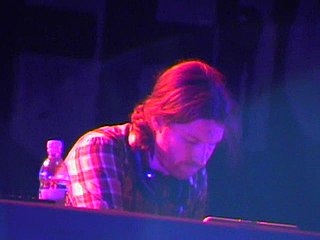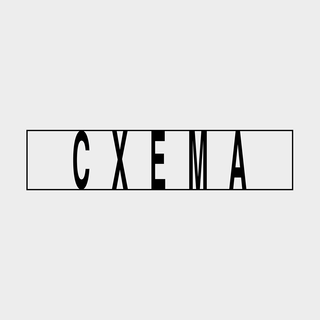Related Research Articles
House is a music genre characterized by a repetitive four-on-the-floor beat and a typical tempo of 120 beats per minute. It was created by DJs and music producers from Chicago's underground club culture in the early/mid 1980s, as DJs began altering disco songs to give them a more mechanical beat.

A rave is a dance party at a warehouse, club, or other public or private venue, typically featuring performances by DJs playing electronic dance music. The style is most associated with the early 1990s dance music scene when DJs played at illegal events in musical styles dominated by electronic dance music from a wide range of sub-genres, including techno, hardcore, house, and alternative dance. Occasionally live musicians have been known to perform at raves, in addition to other types of performance artists such as go-go dancers and fire dancers. The music is amplified with a large, powerful sound reinforcement system, typically with large subwoofers to produce a deep bass sound. The music is often accompanied by laser light shows, projected coloured images, visual effects and fog machines.
Intelligent dance music is a style of electronic music originating in the early 1990s, defined by idiosyncratic experimentation rather than specific genre constraints. It emerged from the culture and sound palette of electronic and rave music styles such as ambient techno, acid house, Detroit techno and breakbeat; it has been regarded as better suited to home listening than dancing. Prominent artists associated with it include Aphex Twin, Autechre, Squarepusher, Venetian Snares, Boards of Canada, Telefon Tel Aviv, μ-Ziq, the Black Dog, the Future Sound of London, and Luke Vibert.
Ambient techno is a subgenre of techno that incorporates the atmospheric textures of ambient music with the rhythmic elements and production of techno. It was pioneered by 1990s electronic artists such as Aphex Twin, Carl Craig, the Black Dog, Pete Namlook and Biosphere.

Music for the Jilted Generation is the second studio album by English electronic music group the Prodigy. It was first released in July 1994 by XL Recordings in the United Kingdom and by Mute Records in the United States. Just as on the group's debut album Experience (1992), Maxim Reality was the only member of the band's lineup—besides Liam Howlett—to contribute to the album.
Hardcore is a genre of electronic dance music that originated in the United Kingdom, the Netherlands, Belgium and Germany in the early 1990s. It is distinguished by faster tempos and a distorted sawtooth kick, the intensity of the kicks and the synthesized bass, the rhythm and the atmosphere of the themes, the usage of saturation and experimentation close to that of industrial dance music. It would spawn subgenres such as gabber.
Progressive house is a subgenre of house music. The progressive house style emerged in the early 1990s. It initially developed in the United Kingdom as a natural progression of American and European house music of the late 1980s.
Bouncy techno is a hardcore dance music rave style that developed in the early 1990s from Scotland and North England. Described as an accessible gabber-like form, it was popularised by Scottish DJ and music producer Scott Brown under numerous aliases.

Spiral Tribe is an arts collective and free party sound system formed in 1990. It organised free parties, festivals and raves in the UK and later Europe in the 1990s. Spiral Tribe was involved in the Castlemorton Common Festival and members have released music on labels such as Network 23 and Big Life Records. The sound system combined pagan beliefs with New Age traveller culture and rave to form teknivals. After a hiatus, the collective reformed as SP23 in 2011 and continues to organise events.

Analogue Bubblebath, also released as Aphex Twin ep, is the first record by musician and producer Richard D. James. The EP was released under his alias The Aphex Twin through Mighty Force Records in September 1991. It was the inaugural release for the label, which at the time was a record shop in Exeter. The record was hugely influential on the development of electronic music, particularly techno and ambient techno. Its release has been described as a key event in the history of dance music. It is the first release in what became the Analogue Bubblebath series.
Electronic dance music (EDM), also known as dance music, club music, or simply dance, is a broad range of percussive electronic music genres made largely for nightclubs, raves, and festivals. It is generally produced for playback by DJs who create seamless selections of tracks, called a DJ mix, by segueing from one recording to another. EDM producers also perform their music live in a concert or festival setting in what is sometimes called a live PA.

Accelerator is the debut studio album by British electronic group the Future Sound of London. It was released in April 1992 by the record label Jumpin' & Pumpin'. It includes the hit single "Papua New Guinea".
German electronic music is a broad musical genre encompassing specific styles such as Electroclash, trance, krautrock and schranz. It is widely considered to have emerged in the late 1960s and early 1970s, becoming increasingly popular in subsequent decades. Originally minimalistic style of electronic music developed into psychedelic and prog rock aspects, techno and electronic dance music. Notable artists include Kraftwerk, Can, Tangerine Dream and Deutsch Amerikanische Freundschaft. German electronic music contributed to a global transition of electronic music from underground art to an international phenomenon, with festivals such as Love Parade, Winterworld and MayDay gaining prominence alongside raves and clubs.

Richard David James, best known as Aphex Twin, is an Irish-born British musician, composer and DJ. He is known for his idiosyncratic work in electronic styles such as techno, ambient, and jungle. Journalists from publications including Mixmag, The New York Times, NME, Fact,Clash and The Guardian have called James one of the most influential or important artists in contemporary electronic music.

The Prodigy are an English electronic dance music band formed in Braintree, Essex, in 1990 by producer, keyboard player and songwriter Liam Howlett. The original line-up also featured dancer and singer Keith Flint and dancer and occasional live keyboard player Leeroy Thornhill, dancer Sharky and MC and vocalist Maxim. They were pioneers of the breakbeat-influenced genre big beat, and achieved mainstream popularity in the 1990s. Howlett's rock-inspired drum rhythms infused with electronic rave music beats/breaks were combined with Maxim's omnipresent mystique, Thornhill's shuffle dancing style, and Flint's later modern punk appearance. The Prodigy describe their style as electronic punk.
Techno is a genre of electronic dance music (EDM) which is generally produced for use in a continuous DJ set, with tempo often varying between 120 and 150 beats per minute (bpm). The central rhythm is typically in common time (4/4) and often characterized by a repetitive four on the floor beat. Artists may use electronic instruments such as drum machines, sequencers, and synthesizers, as well as digital audio workstations. Drum machines from the 1980s such as Roland's TR-808 and TR-909 are highly prized, and software emulations of such retro instruments are popular.

Frankie Bones is an American disc jockey and house and techno music producer from Brooklyn, New York City. He is considered to be the "Godfather of American rave culture" and influential in spreading the idea of Peace, Love, Unity and Respect (PLUR) as a part of that culture.
Gabber is a style of electronic dance music and a subgenre of hardcore techno, as well as the surrounding subculture. The music is more commonly referred to as Hardcore, which is characterised by fast beats, distorted & heavier kickdrums, with darker themes and samples. This style was developed in Rotterdam and Amsterdam in the 1990s by producers like Marc Acardipane, Paul Elstak, DJ Rob, and The Prophet, forming record labels such as Rotterdam Records, Mokum Records, Pengo Records and Industrial Strength Records.

Cxema is a Ukrainian organiser of raves in urban spaces in Ukraine and Europe. Its parties have been held several times a year in various post-industrial locations in Kyiv since 2014.

Saskia Slegers is a Dutch DJ and producer who has run the influential music label Djax since 1989. She deejays dance music as Miss Djax.
References
- 1 2 3 4 "The 90s techno magazine that shaped German rave culture". Dazed. 4 April 2018. Retrieved 12 July 2020.
- ↑ Techno, Lügen und Videos (Der Spiegel, 25 March 1996)
- 1 2 Alice Dundon (21 May 2018). "How a '90s Techno Magazine Influenced German Rave Culture". Culture Trip. Retrieved 12 July 2020.
- ↑ Uwe Schütte (11 January 2017). German Pop Music: A Companion. Walter de Gruyter GmbH & Co KG. p. 175. ISBN 978-3-11-042572-7.